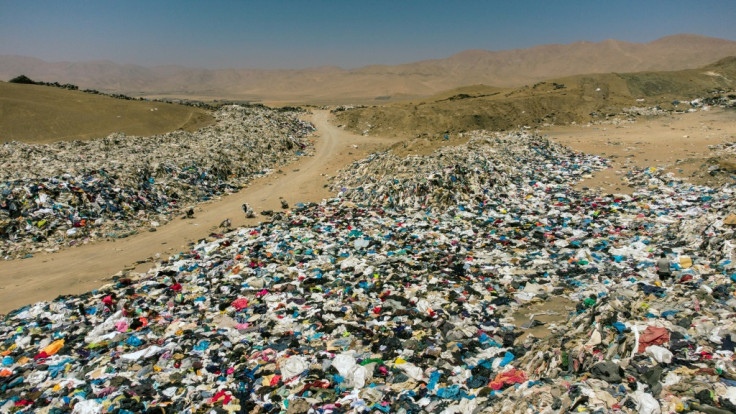
Fast fashion brands have pledged to pave the way for the industry to tackle Europe's mounting issue of discarded garments.
In the surrounding areas of Barcelona, fashion workers are manually sorting through large stacks of used clothing, including t-shirts, dresses, and jeans.
The reuse and recycle charity, Moda Re, is running the second-hand service as a small step towards sustainable manufacturing.
Mode Re, which is partly funded by Inditex, the owner of the high-street brand Zara, plans to expand the sorting facilities across Spain over the coming months.
Inditex is notoriously known for being the world's biggest fast fashion retailer that has a headquarters in Spain's A Coruna.
The expansion sets out to double the volume the sorting facility it handles – which is currently measuring at around 20,000 metric tonnes each year.
The Director of Moda Re, Albert Alberich, called the expansion of sites in Barcelona, Bilbao and Valencia, "just the beginning".
"Increasingly we are going to turn used clothes into raw material from Europe for fashion companies," he added.
Zara's move towards sustainable fashion marks the first signs of a ramp-up in clothing sorting, processing and recycling.
According to Statista, Zara is one of the most successful high-street clothing brands which generated a staggering income of €23,761 million last year.
Clothing rivals H&M and Mango have also hopped on the sustainable trend by creating a non-profit organisation that manages clothing and fabric waste.
The interest in sustainable fashion comes as a response to new European Union proposals that seek to rid the industry of waste. One of the proposals highlights an EU law that requires member states to separate textiles from other wasteful products from January 2025.
Inditex's large profits and fast-fashion reputation only fuelled the European Union's pledge to reverse the effects of "overproduction and overconsumption of clothing".
By 2030, all clothes sold in Europe's high-street stores are to be "long-lived and recyclable", the European Commission said.
Amongst EU member countries, some 5.8 million tonnes of garment materials are discarded each year – equal to 11kg of textile waste per person.
Official figures also show that every second, a truckload of fast-fashion products is landfilled or burned somewhere in the world.
Virginijus Sinkevičius, the Environment Commissioner for the EU, told reporters that the European Union aim to implement a certain sustainable standard amongst fast-fashion retailers that will see companies only manufacture the number of products they need.
"If you release tonnes and tonnes of clothes, textiles, shoes into the market, you will have to collect it," Sinkevičius said.
In 2021, Inditex produced 565,027 tonnes of garments generated by fast-fashion tropes on the web. The number of items has increased by more than 30,000 tonnes of garments since 2018.
While Inditex has not agreed to slow down its production, the company has agreed to work towards reducing its environmental impact while bringing out regular new ranges each season.
Inditex, which claims to adjust garment production to customer demand already, told reporters: "We believe that it is not a question of how much (is manufactured), but of how."
In 2021, half of Inditex's products were produced in a more sustainable way and the company's sustainable strategies have been approved by the Science Based Targets Initiative (SBTi).
Inditex's move against fast fashion is part of its target to reach net zero emissions by 2040.
"The main problem that we are facing is overconsumption," reported Dijana Lind, an ESG analyst at Union Investment, an asset manager that holds shares in Adidas, Inditex, Hugo Boss and H&M.
In a statement, Hugo Boss also confessed that "overproduction and overconsumption are, in general, an industry-wide problem". The designer brand also added that it has taken to analysing its data regularly, to also adjust production to customer demand.







